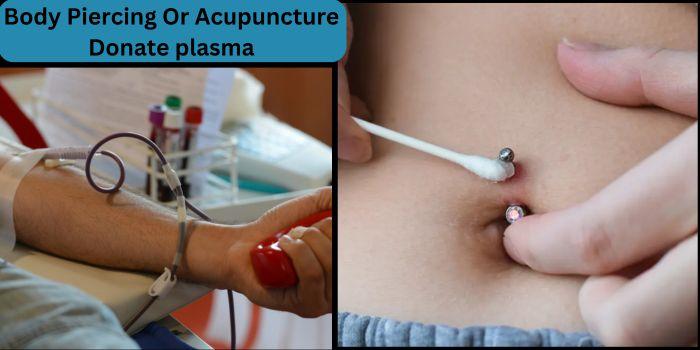Blood donation is often seen as a selfless act that helps save lives, but did you know it can also have significant health benefits for the donor? Beyond the critical role it plays in emergency situations and medical treatments, donating blood offers a range of advantages for the donor’s own health. This article explores the health benefits of blood donation, how it supports overall well-being, and what you need to know before making the decision to donate.
Understanding the Blood Donation Process
Blood donation is a simple and quick procedure where a small amount of blood for health is collected from a donor and used for various medical purposes, such as surgeries, trauma care, cancer treatments, and chronic illness management. The donation process generally takes about 30 to 60 minutes and involves the following steps:
Registration and Health Screening:
Donors provide personal information and undergo a health screening to ensure they meet the eligibility criteria.
Blood Collection:
A trained phlebotomist inserts a needle into the donor’s vein and collects approximately one pint of blood.
Post-Donation Recovery:
Donors are monitored for a short period and provided with refreshments to help them recover.
Health Benefits of Donating Blood
While the primary goal of blood donation is to help others, several studies and anecdotal evidence suggest that donating blood can offer health benefits to the donor as well. Here are some key advantages:
1. Reduced Risk of Hemochromatosis
Hemochromatosis is a condition characterized by excessive iron buildup in the body, which can lead to damage to organs such as the liver, heart, and pancreas. Regular blood donation helps reduce iron levels by removing excess iron from the bloodstream. This can be particularly beneficial for individuals with a genetic predisposition to hemochromatosis or those who have high iron levels.
2. Improved Cardiovascular Health
Donating blood can have a positive impact on cardiovascular health. Research indicates that regular blood donation may help reduce the risk of heart disease and stroke. The reduction in blood viscosity (thickness) after donation can lower the risk of blood clots and improve overall blood flow. Additionally, the act of donating blood helps to lower blood pressure and cholesterol levels, contributing to a healthier cardiovascular system.
3. Enhanced Immune System Function
Some studies suggest that blood donation may enhance immune system function. The process of donating blood stimulates the production of new blood cells, which can improve the body’s ability to fight infections and diseases. Regular donation may also help in the renewal of blood cells and maintain a healthy balance of red and white blood cells.
4. Potential Weight Loss Benefits
While donating blood should not be considered a weight loss strategy, it does burn calories. The body expends energy to replace the blood volume and cells that were donated, which can result in a modest calorie burn. The exact number of calories burned varies but is typically around 650 to 700 calories per donation. This additional calorie expenditure can contribute to overall weight management efforts.
5. Psychological Benefits
The psychological benefits of donating blood are substantial. Engaging in altruistic behavior can lead to a sense of fulfillment, increased self-esteem, and overall well-being. Knowing that your donation is helping save lives and improve the health of others can provide a strong sense of purpose and satisfaction.
6. Regular Health Monitoring
During the blood donation process, donors undergo routine health checks, including measurements of blood pressure, hemoglobin levels, and overall health status. These regular check-ups can help identify potential health issues early on and ensure that donors are in good health before making a donation. This monitoring can serve as a valuable preventative health measure.
Considerations and Safety Measures
While blood donation has many potential health benefits, it is important to approach it with a clear understanding of the guidelines and safety measures:
1. Eligibility Requirements
Potential donors must meet specific eligibility criteria, including age, weight, and health status, to ensure the safety of both the donor and the recipient. These criteria are designed to minimize risks and ensure that the donation process is safe and effective.
2. Post-Donation Care
After donating blood, it is essential to follow post-donation care instructions to ensure a smooth recovery. This includes resting, drinking plenty of fluids, and avoiding strenuous activities for a short period. If you experience any unusual symptoms or discomfort, it is important to seek medical attention promptly.
3. Frequency of Donation
Donors should adhere to recommended donation intervals to ensure their health and well-being. For whole blood donation, the general guideline is to wait at least 56 days between donations. Plasma and platelet donations may have different recommended intervals. Adhering to these guidelines helps ensure that the donor’s body has adequate time to recover.
Conclusion
Blood donation is a noble act with profound benefits for those in need, but it also offers several health advantages for the donor. From reducing the risk of hemochromatosis and improving cardiovascular health to providing psychological benefits and routine health monitoring, the act of donating blood can contribute positively to your overall well-being. If you meet the eligibility requirements and are interested in making a difference, consider donating blood and experiencing the many benefits it can offer. Always consult with a healthcare professional or blood donation center to ensure that you are prepared and informed about the donation process.






